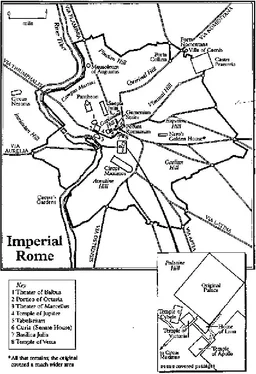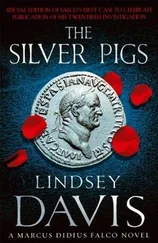Lindsey Davis - The course of Honor
Здесь есть возможность читать онлайн «Lindsey Davis - The course of Honor» весь текст электронной книги совершенно бесплатно (целиком полную версию без сокращений). В некоторых случаях можно слушать аудио, скачать через торрент в формате fb2 и присутствует краткое содержание. Жанр: История, на английском языке. Описание произведения, (предисловие) а так же отзывы посетителей доступны на портале библиотеки ЛибКат.
- Название:The course of Honor
- Автор:
- Жанр:
- Год:неизвестен
- ISBN:нет данных
- Рейтинг книги:5 / 5. Голосов: 1
-
Избранное:Добавить в избранное
- Отзывы:
-
Ваша оценка:
- 100
- 1
- 2
- 3
- 4
- 5
The course of Honor: краткое содержание, описание и аннотация
Предлагаем к чтению аннотацию, описание, краткое содержание или предисловие (зависит от того, что написал сам автор книги «The course of Honor»). Если вы не нашли необходимую информацию о книге — напишите в комментариях, мы постараемся отыскать её.
The course of Honor — читать онлайн бесплатно полную книгу (весь текст) целиком
Ниже представлен текст книги, разбитый по страницам. Система сохранения места последней прочитанной страницы, позволяет с удобством читать онлайн бесплатно книгу «The course of Honor», без необходимости каждый раз заново искать на чём Вы остановились. Поставьте закладку, и сможете в любой момент перейти на страницу, на которой закончили чтение.
Интервал:
Закладка:
Domitian emerged from hiding and appeared to the victorious Flavian troops; they hailed him Caesar; they carried him in triumph to his father's house. On the whole Caenis felt glad she was no longer there when the exultant youth arrived.
Flavius Sabinus was awarded a state funeral.
* * *
Caenis wrote to Vespasian about his brother. She warned him of the shock that the destruction of the temple had caused in Rome. She reassured him that his younger son was safe. It was 30 December—Titus' birthday; she sent Titus her love. She gave them both her honest good wishes for the Flavian dynasty.
Then, with immense care, Caenis wrote to Vespasian alone:
I have believed since the day I met you that you possessed a great destiny. I cannot wish you—or Rome—any less. I have come with you as far as I may. You must realize I shall never in the future cause you to regret the respect and devotion you showed me in the past. We are, as you once observed, strong-minded enough to follow the rules. You know my heart; you always knew. Together or separate, my love for you will never change. Perhaps you were right when you said once that we should not have given love to one another, but oh, dearest of men, I am so glad that we did!
Even now, Caenis never felt entirely easy writing letters for herself. Still, the regular whisper of her pen across the papyrus carried the resonance of a long-mastered craft, so she worked on to the end with the discipline of which she had always been so proud. In the way of a neat secretary she cleaned the extra ink from the split nib before she laid down her pen.
* * *
Twelve hundred miles away, in Alexandria, the newest Emperor of Rome was entertaining the ambassadors of King Vologaeses of the Parthians. For half a century the Parthians had been Rome's most dedicated enemies. Now the Parthians and this strong new Emperor were at peace. King Vologaeses had offered Vespasian forty thousand Parthian archers—an offer that he was gracefully able to refuse. In Alexandria it was a good moment. They held a lively Egyptian feast to celebrate.
Nobody noticed when among all the racket the Emperor paused in sudden deep stillness, as if he had heard somebody calling him.
FORTY
Vespasian released the wheat ships ahead of him in February of the next year, as soon as they could sail. He himself waited in Alexandria until the better weather was assured. Embassies of senators and knights frightened themselves and were seasick dashing across the Mediterranean under dark skies to court his goodwill. He received them gravely. They were impressed. They were particularly impressed to find him entertaining the fearful Parthians.
Titus returned to Judaea in April. He was Titus Caesar now. The freedman Narcissus had, after all, cultivated his dynasty. Sometimes Caenis wondered whether Narcissus had realized all along; so like the old schemer to have a second plan ready in case the first one failed.
Vespasian had shown Titus the letter from Caenis. He knew how his son would react. He explained to Titus briefly certain social facts of life. Titus said nothing. Neither of them wrote to her. Titus could not bear to. As for his father, he growled that taming an ox by telepathy was easy; women were best handled where you had space to get a rope around their horns.
Titus retorted grimly, "Well— you're the country boy! "
There was unrest in Africa, which had no time for Vespasian; Africa was still in a sense bombarding him with turnips. There was an outbreak of piracy on the Black Sea, which one of his lieutenants sailed to put down. There was civil war in north Britain. There was an extremely serious revolt in Germany, cleared up with good luck and some dash by Vespasian's relative Petilius Cerialis. Though they passed like a dream for Caenis, these were major events that occupied much of Vespasian's attention.
Domitian, whom she never saw nowadays, had acted as his father's representative in Rome. He made a commendable speech to the Senate, though he then found himself struggling to take precedence over Mucianus, who actually held the formal powers of deputy. At first Domitian conducted himself with distinction, though he overstepped the mark during the German revolt, when he tried to coerce Cerialis into a conspiracy—whether against his father or his brother was typically unclear. Cerialis ignored it. Domitian was downgraded. He made himself a patron of the arts instead, a much more suitable way for an Emperor's younger son to waste his time. Vespasian was furious with his political maneuvers, though Titus—more loyal to his brother than Domitian would ever be in return—interceded on his behalf with his usual diplomacy. Mollified, Vespasian embarked for home.
By then the Senate had awarded him in a pack all of the honors and titles that previous Emperors had assembled one by one. At this point Vespasian did not request and was not awarded a Triumph; there was an ancient rule that such honors were reserved for conquest over external enemies, not for shedding Roman blood. There would be one. There would be a Triumph for Jerusalem; that was understood. It would be awarded to Vespasian and Titus together—Titus, who had worked so hard and with such grace to bring his father to the throne, and who would share the burdens of office with him from the start.
So Vespasian was coming.
Waiting for him to arrive, Rome could hardly bear the suspense. In the end crowds flocked out, some journeying many miles to meet him as he traveled up from the south. Behind them, the city lay strangely quiet. Every town on the way erupted when he arrived. In the country whole families lined his route to applaud. Even before they saw him they knew a chapter had closed. Once he appeared, they were surprised to find how good-natured the man was. People supposed becoming Emperor had changed him for the better. Caenis had always told him: People had no sense.
When Vespasian entered Rome the entire city was smothered under garlands and shimmering with incense. Caenis let all her household go to watch him arrive. She stayed at home. There was no longer Veronica to rent a balcony. Besides, any woman in the crowd who hurled her lunch at the Emperor would be strung up on a scaffold by the Praetorian Guard. Aglaus, loyal to the last, kept Caenis company. They could hear the noise in the distance throughout most of the day. Being near the Praetorian Camp made it worse. There was tremendous activity.
She knew Aglaus was frightened of what she would do. Caenis merely spring-cleaned her house.
Toward the end of the afternoon the inevitable equerry turned up. Vespasian had always been considerate. Caenis had understood there would have to be one brief skirmish: the kind gesture of recognition on his part; the formal resignation on hers.
The equerry, poor dog, was the man who had once in Greece advised the disgraced Vespasian to go to Hades. Aglaus enjoyed himself for some time over that; she could hear it going on through a half-open door.
"Must have been a sticky moment when he turned up in his nice new purple toga! What did he say to you?"
"I asked him what he wanted me to do; he said, ‘Oh, go to Hades!'—and he grinned."
"Neat! You'll learn to enjoy that grin. But you're working for him?"
"So far. Today he is refusing to settle new arrangements. Caused a bit of an upset; you can imagine. All those Greek eels with their neat lists hoping to wind their way into his good opinion; every one of them has been put off. They were jumpy anyway about letting Domitian take over the Palace—there's a strong indication already that Papa has torn a strip off his young lordship. . . . Only thing Vespasian has done is cancel the procedure for searching visitors; quite a few Praetorian palpitations at that! He says he wants to consult someone about the rest." Aglaus laughed bitterly, knowing whom Vespasian used to consult on domestic matters. The equerry became more businesslike. "Right. This won't do—better lead me to Antonia Caenis."
Читать дальшеИнтервал:
Закладка:
Похожие книги на «The course of Honor»
Представляем Вашему вниманию похожие книги на «The course of Honor» списком для выбора. Мы отобрали схожую по названию и смыслу литературу в надежде предоставить читателям больше вариантов отыскать новые, интересные, ещё непрочитанные произведения.
Обсуждение, отзывы о книге «The course of Honor» и просто собственные мнения читателей. Оставьте ваши комментарии, напишите, что Вы думаете о произведении, его смысле или главных героях. Укажите что конкретно понравилось, а что нет, и почему Вы так считаете.












